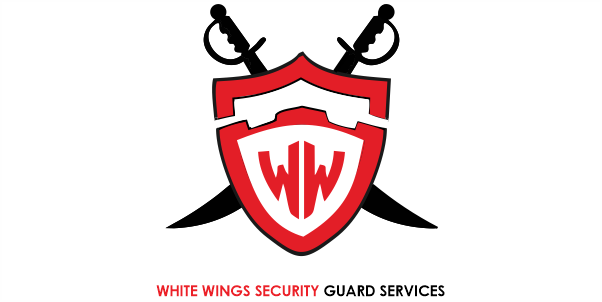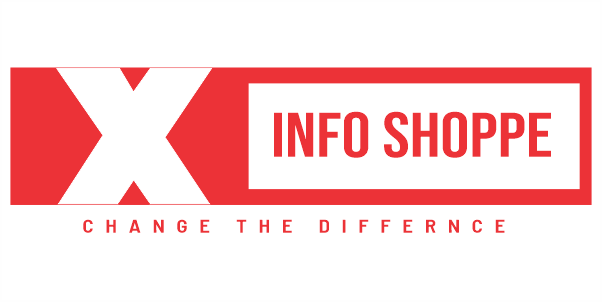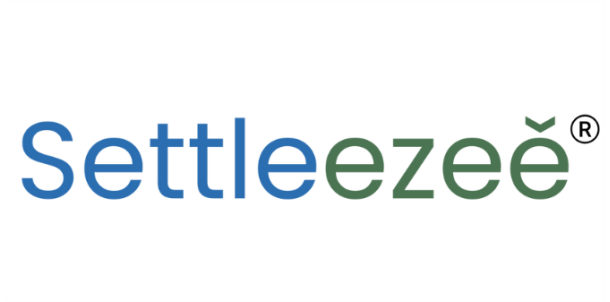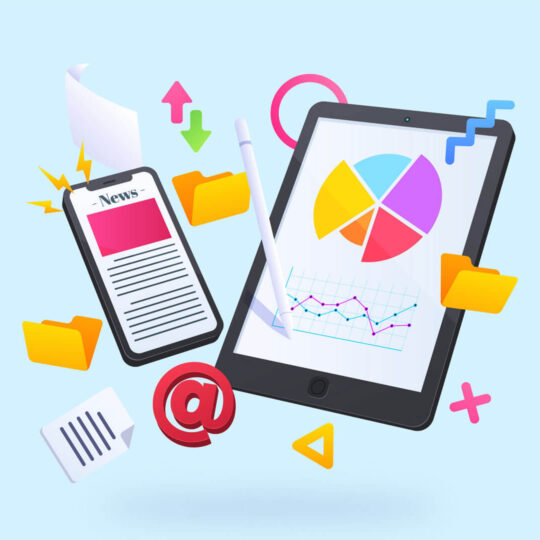- +1 (717) 710 6577
- info@digitalmartlab.com
Introduction to Digital Strategy
A digital strategy is a comprehensive plan that leverages digital resources to achieve specific business objectives. This strategy integrates various online marketing channels and tactics to create a cohesive approach that drives growth, enhances customer engagement, and improves overall business performance. An effective digital strategy aligns with your business goals and uses the latest technologies and trends to gain a competitive edge.

Pricing custom to you. Starting at $3,000
Why Digital Strategy is Important?
Goal Alignment: A well-defined digital strategy ensures that all digital efforts are aligned with the overarching business objectives, leading to more focused and effective campaigns.
Improved Customer Insights: By leveraging data analytics, businesses can gain valuable insights into customer behavior, preferences, and trends, allowing for more targeted and personalized marketing efforts.
Increased Efficiency: Streamlining digital efforts through a cohesive strategy helps optimize resources, reduce waste, and improve ROI across all digital channels.
Competitive Advantage: Staying ahead of digital trends and adopting innovative technologies can provide a significant competitive edge in a rapidly evolving market.
Key Components of a Digital Strategy
SEO (Search Engine Optimization): Enhancing website visibility on search engines to attract organic traffic.
Content Marketing: Creating and distributing valuable, relevant content to attract and engage a target audience.
Social Media Marketing: Utilizing social media platforms to connect with customers, build brand awareness, and drive traffic.
PPC (Pay-Per-Click) Advertising: Using paid search and display advertising to reach a broader audience and drive conversions.
Email Marketing: Engaging with customers through personalized email campaigns to nurture leads and drive sales.
Analytics and Reporting: Continuously measuring and analyzing digital performance to optimize strategies and achieve better results.
Effective Digital Strategy Development
Market Research: Conducting thorough research to understand the market, competition, and target audience.
Setting Clear Objectives: Defining specific, measurable, achievable, relevant, and time-bound (SMART) goals to guide the strategy.
Integrated Approach: Ensuring all digital channels and tactics work together harmoniously to achieve the set objectives.
Regular Monitoring and Adjustment: Continuously tracking performance metrics and making data-driven adjustments to improve effectiveness.
Customer-Centric Focus: Prioritizing the customer experience in all digital interactions to foster loyalty and drive long-term success.
How Digital Strategy Can Help Grow Your Business
Enhanced Online Presence A robust digital strategy improves your online presence, making it easier for potential
customers to find your business. This involves optimizing your website for search
engines (SEO), engaging with audiences on social media, and creating valuable content
that attracts and retains visitors.
Better Customer Engagement With a clear digital strategy, businesses can create personalized experiences that
resonate with their target audience. By using data-driven insights, you can tailor your
marketing messages to address specific customer needs and preferences, leading to
higher engagement and satisfaction.
Data-Driven Decision Making Digital strategies are built on data and analytics. By continuously monitoring and
analyzing your digital marketing efforts, you can gain insights into what works and what
doesn’t. This enables you to make informed decisions, optimize your campaigns, and
allocate resources more effectively.
Improved Lead Generation and Conversion A comprehensive digital strategy includes tactics for attracting potential customers and
guiding them through the sales funnel. This might involve using paid advertising (PPC),
email marketing, and content marketing to nurture leads and convert them into paying
customers.
Increased Brand Awareness Consistent and targeted digital marketing efforts can significantly boost your brand’s
visibility and awareness. By maintaining a strong online presence and engaging with
your audience across multiple channels, you can build a loyal customer base and
establish your brand as a trusted authority in your industry.
Scalability and Flexibility Digital strategies are highly scalable and can be adapted to meet the changing needs of
your business. Whether you’re a small startup or a large enterprise, a digital strategy
can be customized to fit your specific goals and budget. This flexibility allows you to
scale your efforts as your business grows.
Cost-Effective Marketing Digital marketing is often more cost-effective than traditional marketing methods. With
precise targeting and measurable results, businesses can achieve better ROI by
focusing their efforts on the most effective channels and tactics. This ensures that
marketing budgets are used efficiently and effectively.
Pricing for Digital Strategy Services
The cost of digital strategy services varies based on the complexity of the project and the scope of services provided. General pricing ranges are:
- Basic Packages: $1,000 – $3,000 per month, including essential strategy development and initial audits.
- Advanced Packages: $3,000 – $10,000 per month, offering comprehensive strategy services, including detailed planning, implementation, and reporting.
Enterprise Packages: $10,000+ per month, tailored for large businesses with complex needs, providing extensive support, advanced tools, and dedicated account management.
Interested in working together?
Contact Us

Faq
Freequently Ask Questions
Digital strategy is a comprehensive plan that leverages digital resources to achieve
specific business objectives. It integrates various online marketing channels and tactics
to create a cohesive approach that drives growth, enhances customer engagement, and
improves overall business performance.
A digital strategy is important because it:
● Aligns Goals: Ensures all digital efforts are focused on achieving overarching
business objectives.
● Improves Customer Insights: Provides valuable data on customer behavior
and preferences.
● Increases Efficiency: Optimizes resources and improves ROI across digital
channels.
● Offers Competitive Advantage: Keeps your business ahead of digital trends
and technologies.
Key components include:
● SEO (Search Engine Optimization): Enhancing website visibility on search
engines to attract organic traffic.
● Content Marketing: Creating and distributing valuable content to engage your
audience.
● Social Media Marketing: Connecting with customers on social media platforms
to build brand awareness.
● PPC (Pay-Per-Click) Advertising: Using paid ads to reach a broader audience
and drive conversions.
● Email Marketing: Engaging customers through personalized email campaigns.
● Analytics and Reporting: Measuring and analyzing digital performance to
optimize strategies.
A digital strategy helps grow your business by:
● Enhancing Online Presence: Making it easier for potential customers to find
your business online.
● Improving Customer Engagement: Creating personalized experiences that
resonate with your target audience.
● Enabling Data-Driven Decisions: Providing insights to optimize marketing
efforts and allocate resources effectively.
● Boosting Lead Generation and Conversion: Attracting and converting
potential customers through targeted campaigns.
● Increasing Brand Awareness: Building a strong online presence and
establishing your brand as a trusted authority.
To develop an effective digital strategy:
● Conduct Market Research: Understand your market, competition, and target
audience.
● Set Clear Objectives: Define specific, measurable, achievable, relevant, and
time-bound (SMART) goals.
● Integrate Channels: Ensure all digital channels work together harmoniously.
● Monitor and Adjust: Track performance metrics and make data-driven
adjustments.
● Focus on Customer Experience: Prioritize the customer experience in all digital
interactions.
The cost of digital strategy services varies based on complexity and service scope.
General pricing ranges are:
● Basic Packages: $1,000 – $3,000 per month, including essential strategy
development and initial audits.
● Advanced Packages: $3,000 – $10,000 per month, offering comprehensive
strategy services, including detailed planning, implementation, and reporting.
● Enterprise Packages: $10,000+ per month, tailored for large businesses with
complex needs, providing extensive support, advanced tools, and dedicated
account management.
SEO (Search Engine Optimization) is crucial in a digital strategy as it enhances your
website’s visibility on search engines, attracting more organic traffic. Effective SEO
involves optimizing your website’s content, structure, and technical aspects to rank
higher in search engine results pages (SERPs).
Social media marketing is a key component of a digital strategy, helping to connect with
customers, build brand awareness, and drive traffic to your website. It involves creating
and sharing content on social media platforms to engage your audience and foster
community around your brand.
Yes, a digital strategy can be customized to fit your specific business goals, industry,
and target audience. It involves tailoring various digital marketing tactics to meet your
unique needs and objectives, ensuring a more effective and relevant approach.
A digital strategy should be regularly reviewed and updated to stay relevant and
effective. This could be quarterly, biannually, or annually, depending on the pace of
change in your industry and the dynamics of your market. Continuous monitoring and
adjustment ensure that the strategy remains aligned with your business goals and
market conditions.
Digital strategy is a broad plan that outlines how digital tools and channels will be used
to achieve business objectives. Digital marketing, on the other hand, refers to the
specific tactics and activities used to implement the strategy, such as SEO, content
marketing, social media, and PPC advertising.
The success of a digital strategy can be measured using various metrics, including:
● Website Traffic: The number of visitors to your website.
● Conversion Rate: The percentage of visitors who take a desired action (e.g.,
making a purchase, filling out a form).
● Engagement Metrics: Metrics such as bounce rate, average session duration,
and pages per session.
● ROI: The return on investment from your digital marketing efforts.
● Customer Acquisition Cost (CAC): The cost of acquiring a new customer.
Yes, a well-crafted digital strategy can help manage and enhance your brand’s
reputation. This includes monitoring online mentions, responding to customer feedback,
and creating positive content that reinforces your brand’s values and credibility.
Content marketing involves creating and distributing valuable, relevant content to attract
and engage your target audience. It plays a critical role in a digital strategy by driving
traffic, improving SEO, building brand authority, and nurturing leads through the sales
funnel.
Mobile optimization is essential in a digital strategy because a significant portion of
online traffic comes from mobile devices. Ensuring that your website and digital assets
are mobile-friendly improves user experience, increases engagement, and enhances
search engine rankings.
Our Clients

















